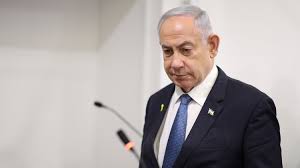NEW DELHI: The Supreme Court on Wednesday indicated that it is likely to start hearing petitions challenging the abrogation of Article 370 and bifurcation of the erstwhile state of Jammu and Kashmir into two Union territories in August.
The top court, however, did not mention the date of hearing, though as per the cause list, the cases were listed for July 11.
Justice BR Gavai was hearing the plea filed by activist Teesta Setalvad when senior advocate Kapil Sibal suggested that the hearing in her petition may be scheduled in August. Justice Gavai then said that in August, the apex court will hear pleas relating to Article 370.
“It will be too late because we will begin hearing the challenge against Article 370,” Justice Gavai said.
To this, Sibal said the hearing in the Article 370 case was supposed to begin on July 11.
“That (July 11) is only for directions. Tentatively, we will be starting in August,” Justice Gavai told Sibal.
As per the cause list, the matters are listed “for directions” on July 11. It means on July 11, the five-judge Constitution bench will pass direction on the completion of the procedural formalities, such as the filing of the documents and submissions, setting out the order of arguments and allocation of time.
A bench of Chief Justice of India DY Chandrachud and Justices Sanjay Kishan Kaul, Sanjiv Khanna, BR Gavai, and Surya Kant will hear the case.
The petitions which are pending since 2019 have not been taken up for hearing since March 2020.
Various petitions are pending before the top court challenging the validity of the law scrapping Article 370 of the Constitution and special status to Jammu and Kashmir and bifurcating the state into two Union Territories.
On August 5 2019, the Central government announced its decision to revoke the special status of Jammu and Kashmir granted under Article 370 and split the region into two Union territories.
A five-judge Constitution bench in March 2020 had declined to refer to a larger 7-judge bench a batch of petitions challenging the Constitutional validity of the Centre’s decision to abrogate provisions of Article 370 on August 5, saying there were no reasons to refer the matter to a larger bench.
A number of petitions have been filed in the top court including those of private individuals, lawyers, activists and politicians and political parties challenging the Jammu and Kashmir Reorganisation Act, 2019, which splits Jammu and Kashmir into two Union Territories — Jammu and Kashmir, and Ladakh.




















